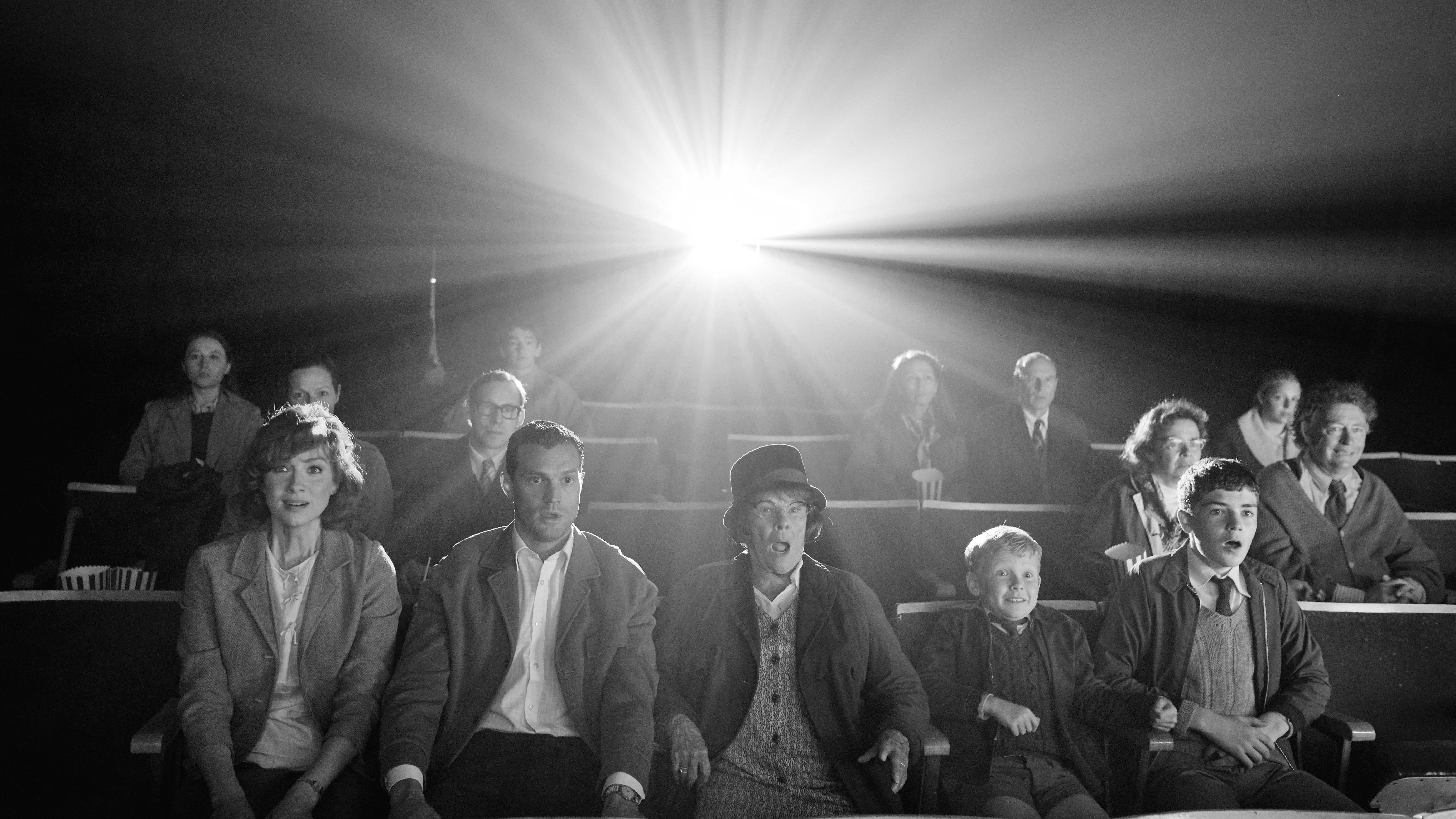Kenneth Branagh revisits the troubles (and Troubles) of his youth in the oddly remote Belfast
Why is the most personal movie of the filmmaker’s career so impersonally directed?


Kenneth Branagh says it took him 50 years to find the right dramatic angle on the events of his childhood in Northern Ireland circa the late 1960s. Watching Belfast, the modestly scaled, monochromatic movie he’s made about that turbulent period of his own life and the country’s, you can’t help but wonder if he waited too long. This may, in content, be the most “personal” film in the up-and-down career of the classically trained stage and screen veteran. But however autobiographical the material, Branagh approaches it from a curious remove: He’s made a memoir that’s tenderly nostalgic in the broad strokes without ever locking the audience into an emotional perspective. It’s like paging through a photo album of your youth and struggling to conjure any specific feelings about the images, even the ones you’re in.
The film opens on the morning of August 15, 1969. To Americans, that date marks the beginning of a major cultural event, Woodstock. Across the pond, it’s remembered as the start of something less celebratory or unifying: the moment “the troubles” came to Belfast, engulfing the capital city of Northern Ireland in violent conflict. Branagh sets an idyllic scene, sweeping his camera over a bustling stretch of town in a single, extended take, children laughing and playing in the streets. And then a car explodes, and in floods an armed mob of loyalists and rioters, shattering the peace and innocence of the quaint, idealized Belfast the filmmaker has plucked from his memories.
Nine-year-old Buddy (Jude Hill) is there to witness history in the making. He is Branagh’s adolescent proxy and the film’s intersection point of the personal and the political. Buddy, the youngest of two sons, comes from a Protestant family, but his parents have no interest in fighting with the Catholics. His father (Jamie Dornan), who leaves the boys in the loving but sometimes exasperated care of their mother (Caitriona Balfe) while he’s away on business in London, resists the increasingly threatening with-us-or-against-us entreaties of Belfast’s loyalist contingent. If the film has a political conscience, it’s his almost relaxed “Can we all get along?” philosophy.
Belfast moves at a ramble. It keeps the encroaching chaos of the troubles mostly in the background; showdowns in the street and ransacking of local businesses are granted no more significance than Buddy’s nagging crush on a Catholic classmate—a choice that shrewdly acknowledges the way that headline news of the adult world can disappear into the tapestry of a child’s day-to-day, eclipsed by minor playground melodramas.
For advice, the boy turns to his grandparents, played by Ciarán Hinds and Judi Dench, both visibly liberated by the opportunity to go small and ordinary, to portray founts of working-class wisdom. Branagh, famed enthusiast of the Bard, remains an ace with his actors. In Balfe, he locates both a toughness and a glamour (the latter shining brightest during a night of dancing and revelry that recalls another black-and-white collision of familial and national history, Cold War). And Dornan exudes the humane decency we all want to see in our fathers; between this and his against-type comic work in Barb And Star, the one-time Christian Grey is having a good year. Everyone seems at once grounded and a little larger than life—the right approach for how we remember the figures that loom over our formative years.
Is this Branagh’s Roma? It shares with that Oscar winner a certain rigor of cinematographic design, but it doesn’t exactly immerse us in its time period or the writer-director’s memories of it. Branagh, who never met an angle he couldn’t cant, films even the most intimate conversations from eccentric vantages—ballasting his actors with vast expanses of negative space or oddly blocking them in separate quadrants of the screen. It’s a restless, fussy shooting strategy that occasionally flirts with justification; one could rationalize all the voyeuristic shots through windows and doors as a representation of how children eavesdrop on adult drama. Just as often, though, it’s merely distracting—in part because there’s no consistent sense of point of view behind Branagh’s unusual framing.
Only when detouring into Buddy’s burgeoning preoccupations does Belfast threaten to actually adopt the boy’s outlook, to close the distance between us and the way Branagh might have seen the world at that age. Trips to both varieties of theater become intrusions of color in this velvety B&W world, the actors on stage or screen granted a full palette to suggest the way these Saturday matinees sparked Branagh’s developing imagination. (There’s also a shot of Buddy reading an issue of Thor—a rejoinder to any assumptions that his Marvel movie was strictly work-for-hire.) The music, on the other hand, seems only regionally specific: It’s basically wall-to-wall Van Morrison, a midtempo shortcut to mass nostalgia trips.
To its credit, Belfast is never egregiously sentimental: It’s just a little too off-kilter in staging—and a little too naturalistic in its scenes of domestic bliss and discord—to go full cutesy-poo in its depiction of a boy’s coming of age against the churn of history. The tradeoff, though, is that the film seems always on the outside looking in, stranded in some unaffecting dead zone between the growing pains of country and child. Branagh dedicates the movie to the survivors of Belfast, to those who left and those who stayed. Yet by the time Buddy’s family makes their own tough choice about which of these paths to follow, you realize that he’s never really connected us to the magic or even the reality of a place he’s reconstructed almost entirely on sets. The Belfast of his past and of his mind hasn’t made it to the screen intact.